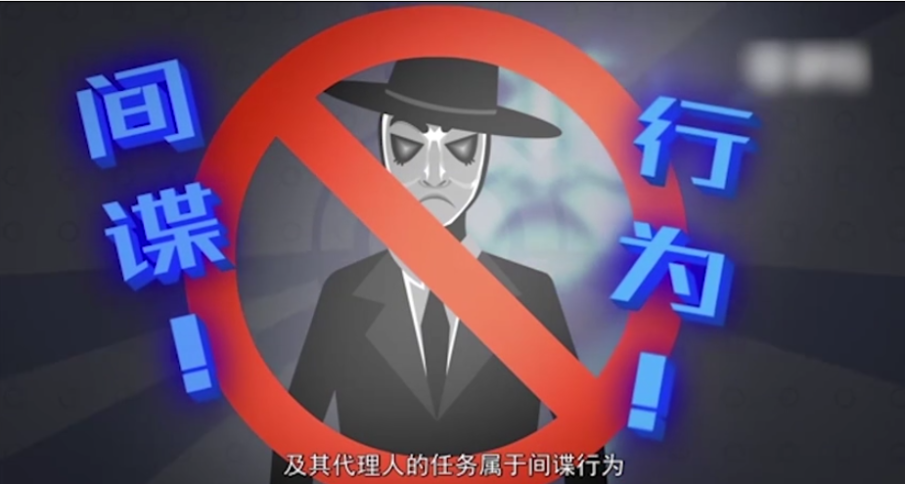Within the international intelligence community, China is a name that comes up pretty often. With confirmed cases of Chinese espionage resulting in state secrets migrating their way East into projects like the Chinese J-20 (which bears more than a striking resemblance to the American F-22) mentions of the economic powerhouse are often coupled with strategies intended to curb their abilities to infiltrate our national security infrastructure. Because of China’s huge population and comparatively large intelligence apparatus, methods don’t often even have to be that good in order to be employed – just ask the SOFREP writers that have been approached by Chinese intelligence gatherers in bars in Las Vegas.
China has an illustrious history of successfully gaining intelligence from Western nations and employing it for their own military gain, but like any nation with offensive espionage operations underway, there’s still the other side of the coin to worry about: how do you stop opposing nations from doing the same to you?
You could rely on your citizen’s sense of patriotism to encourage them to turn potential spies in – but in today’s global culture, it has become increasingly difficult to create the allure of nationalist idealism in enough people to make such a system aggressively effective. You could rely on fear of reprisal for not working to turn in potential spies, but with such difficult living conditions for so many of Chinese laborers, it could be difficult to truly incentivize them through fear of worsening conditions alone.
So the Communist Party in China chose to use a decidedly capitalist approach to the problem of foreign spying: on Monday they announced cash rewards totaling to more than $72,000 (a half million yuan) for information that leads to the apprehension of foreign intelligence actors operating within China.
Better still: they made a cartoon to help teach you how.
The reward system is new, but their public effort to weed out foreign spies isn’t. Two years ago, China launched a hotline for citizens to report suspicious foreigners to, and last year as a part of their one year anniversary, they even released a comic-book poster intended to warn young, female government employees about the dangers of dating “handsome foreigners.”
The Beijing Daily Newspaper reported on China’s new policy as a mandatory consequence of China’s opening up to foreign entities – painting the picture of a direct threat posed by foreigners within China:
“Foreign intelligence organs and other hostile forces have also seized the opportunity to sabotage our country through political infiltration, division and subversion, stealing secrets and collusion,” the newspaper said.
Many are concerned, however, that China’s new policy, which offers awards ranging from $1,500 – $72,000 for reporting suspicious foreigners, will make serving as a foreign journalist in China more dangerous.
“This is absolutely inexplicable and absurd,” Li Fan, founder of the private think tank World and China Institute said. “I don’t know what the government is thinking about.”
“How can foreign media report here?” he asked. “If you take a photo on the street, somebody will report you as a hostile foreign spy. People will be more cautious to talk to foreign media.”
Already have an account? Sign In
Two ways to continue to read this article.
Subscribe
$1.99
every 4 weeks
- Unlimited access to all articles
- Support independent journalism
- Ad-free reading experience
Subscribe Now
Recurring Monthly. Cancel Anytime.
Li, as well as other opponents of new anti-espionage measures have drawn parallels between the financial incentive to turn suspicious people in to the government and the Chinese Cultural Revolution that saw the government encouraging husbands, wives, and even children to turn one another in or denounce their own families in favor of the government.
Of course, China is not the only nation that offers cash rewards for information that benefits investigations into domestic or international threats – and one could argue similar policies in the United States haven’t produced a witch-hunt culture, though it bears noting that the United States does not employ a generic cash payout policy for reporting suspicious foreigners.
In the announcement, the Chinese government cited a story from January in which a group of fishermen were rewarded for turning in an “unidentifiable object inscribed with foreign words” they found while trawling for fish that turned out to be “a spying device that was collecting data on China.” What the device was or what nation they claim it originated from was not released, but Chinese officials claimed that there could be additional cash incentives for discoveries that include foreign equipment.
Image courtesy of the Beijing National Security Bureau










COMMENTS